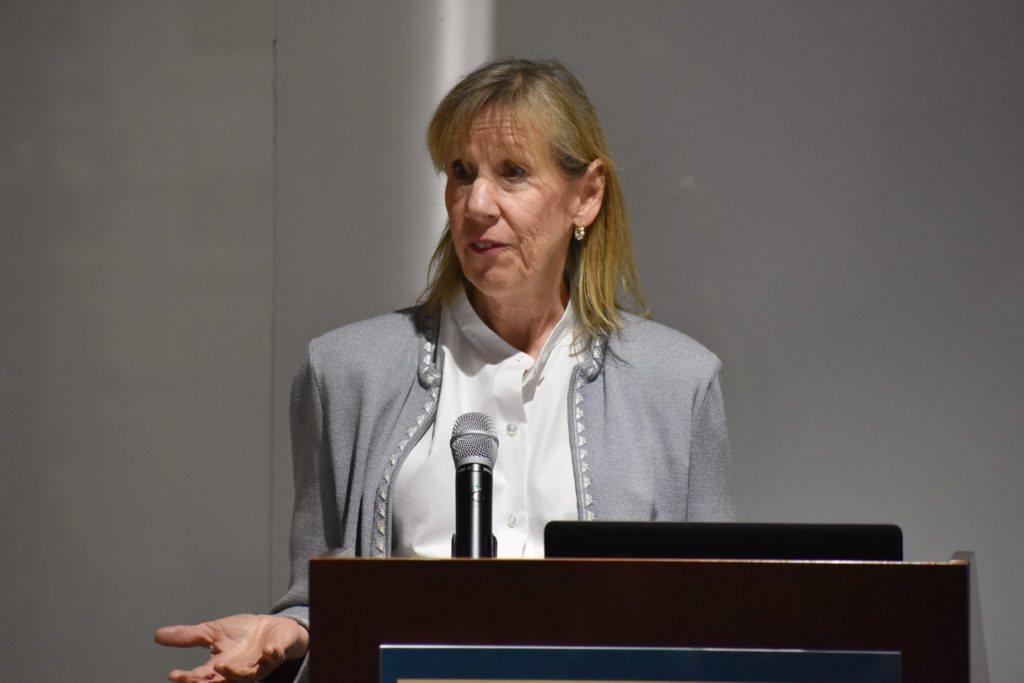GW Libraries will no longer charge patrons a daily fine for most overdue books.
Officials announced last week that starting April 15, University libraries will no longer charge students a late fee each day for general collection books – books that are not on reserve – that are fewer than 40 days overdue. Library services experts said the policy change will encourage students to use more library materials by eliminating a potential cost they could incur.
Students were previously charged 25 cents per late book per day, with a maximum fine of $10 per book. The new policy will eliminate the fine for patrons of Gelman, Eckles, Himmelfarb Health Sciences, the Jacob Burns Law and the Virginia Science and Technology Campus libraries.
Geneva Henry, the dean of libraries and academic innovation, said the change is a “significant win” for students because it reduces the “financial burden” students face when returning library books late. She said all universities in the Washington Research Library Consortium – a group of nine university libraries in the area that share materials – will eliminate their late fees.
“After discussion among Washington Research Library Consortium members, we found a way to eliminate these fines to support student affordability while also maintaining a consistent fee structure,” Henry said in an email.
Henry said eliminating the fines will not significantly impact the library’s budget. The library will continue to rely on donations to fund library services, she said.
“We continue to rely on our generous donors, including those students who make the library donation, to increase funding for library buildings and services,” Henry said.
She said GW Libraries will continue to charge patrons late fines for high-demand items like course reserves – textbooks intended for students to borrow in two-hour increments – but the library will continue to “monitor” those fines to evaluate whether they could be eliminated in the future.
Officials will also remove “current unpaid book fines” from all patrons’ accounts during the summer, according to the GW Libraries website.
Seven of GW’s 12 peer institutions, including Tufts and Boston universities, do not charge daily late fees for general collection books overdue for fewer than 30 days.
Judy Viken, a library assistant at the University of Rochester, said her school’s library does not charge students a late fee until the book is considered lost after 30 days. She said she does not believe a significantly higher number of students have returned books late since her library changed the fee system in the early 2000s.
Viken said GW’s new policy will reduce the financial burden students face from late fees and may also foster a friendlier relationship between students and library staff since the latter will not constantly hound students to return materials.
“It certainly creates a better will with the patrons, and, also, we try to have a service philosophy that we are here to serve our patrons, not to punish them,” Viken said.
William Bloom, the head of access services at Tufts University’s library, said Tufts officials removed daily fines for most library materials in late 2017 because there is “no real consequence” of returning a book late if the book is not needed by another student. He said library fines do not account for a significant portion of library budgets.
“Returning books late is not consequential if no one else needs the item,” Bloom said in an email. “That’s why we still charge fines for overdue reserves, equipment and recalls. We have found that this helps to reduce the stresses our students have to deal with.”
Cheryl Gowing, the associate dean of library information systems and access at the University of Miami, said students are charged 25 cents for each day a general collection item is late, with a three-day grace period. She said GW Libraries should continue to notify students if a book is past due to ensure students return late materials.
“Libraries just want to make sure the stuff comes back or if it’s lost, we know about it and we can replace it if it needs to be replaced,” Gowing said.
Roman Bobek and Ilena Peng contributed reporting.




